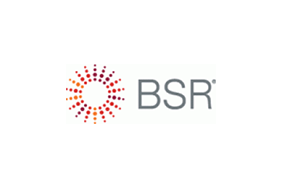New World Bank Report Aims to Reduce Barriers to Corporate Social Responsibility Compliance at the Supplier Level in Global Supply Chains
Published 11-03-03
Submitted by BSR
"This report demonstrates the views of a diverse range of stakeholders and points in the same direction: the need for greater consistency and collaboration to accomplish the goal of improving working conditions for the millions of workers producing goods for companies that have come to rely on their supply chains," said Aron Cramer, Vice President of BSR and one of the report's authors. Cramer added, "We hope that this report will guide the next generation of efforts by companies, the public sector, stakeholders, workers and their representatives to create sustainable solutions to this critical set of issues."
Dr. Margaret Jungk, senior advisor at DIHR added, "The World Bank study fills a critical gap in our existing knowledge of CSR implementation in supply chains. It constitutes one of the largest, most comprehensive research studies of its kind, aiming to understand the challenges faced by suppliers and buyers, as well as the expectations of NGOs and other stakeholders. But ..." warned Dr. Jungk, "the ultimate impact of the study should not be limited to the academic/research community -- rather, it should fuel the efforts of businesses and governments to implement their policies on the ground, where real people are grappling with real human rights, labour and environmental issues on a daily basis."
"It is particularly noteworthy that many of the identified challenges seem to be applicable across industries pointing in the direction of structural barriers rather than industry-specific barriers to implementation," adds Peder Michael Pruzan-Jorgensen, Manager with PricewaterhouseCoopers. He continues: "In particular it was striking that almost all consulted parties pointed to the need for greater involvement of local government in enforcing relevant laws pertaining to the working environment. As such, the report is an eye-opener in the sense that governments in developing countries need to be attentive to improving labour conditions rather than lowering standards in their efforts to become competitive in the global market place."
The report is based on interviews with more than 200 individuals in multinational companies and their supplier partners, NGOs, trade unions, governments and inter-governmental organizations, as well as 200 agricultural and apparel workers, in Asia, Latin America, Europe and the United States.
Although the report shows significant progress has been made through current approaches to apply CSR in supply chains, current efforts are likely not sustainable, and are insufficiently coordinated to ensure systematic improvement.
Some key findings in the report include:
The report also addressed some of the commonly-cited "barriers" to achievement of good social and environmental performance in supply chains, and found that:
The authors cautioned against overemphasizing the commonly-stated view that the proliferation of codes of conduct presented a barrier to good practice, noting that there is significant -- if incomplete -- alignment of codes with International Labor Organization (ILO) conventions on core labor rights. The report also noted that "local ownership" of solutions is essential to the long-term achievement of the social and environmental goals embodied in the numerous codes of conduct that have developed in recent years.
For more information and to download a copy of the report, visit www.worldbank.org, or the websites of any of the three participating organizations listed below.
About BSR
Founded in 1992, Business for Social Responsibility is a global nonprofit organization that helps member companies to achieve success in ways that respect ethical values, people, communities and the environment. BSR provides information, tools, training and advisory services and promotes cross sector collaboration to make corporate social responsibility an integral part of business operations and strategies. BSR member companies have nearly $2 trillion in combined annual revenues and employ more than six million workers around the world. For more information, visit www.bsr.org.
About the Human Rights & Business Project at the Danish Institute for Human Rights (DIHR):
The Human Rights & Business Project was established in 1999 at the Danish Institute for Human Rights (DIHR), a United Nations-accredited national human rights institution with over 100 human rights experts specializing in all aspects of human rights implementation, training, research and monitoring. The Human Rights & Business Project strives to combine the expertise of the human rights research community with the experience of business in order to develop concrete achievable human rights standards for companies, and to help companies live up to those standards in practice through training and advisory services. The Project works closely with a core group of companies who help ensure that the research is useful, practical, and can be directly and easily applied by business. DIHR is a nonprofit organisation, and all proceeds from training and advisory services go directly to fund research and related activities aimed at the promotion and strengthening of human rights. For more information, please visit www.humanrightsbusiness.org
About PricewaterhouseCoopers
PricewaterhouseCoopers (www.pwc.com) is the world's largest professional services organisation. Drawing on the knowledge and skills more than 125,000 people in 142 countries, PricewaterhouseCoopers builds relationships by providing services based on quality and integrity. PricewaterhouseCoopers refers to the network of member firms of PricewaterhouseCoopers International Limited, each of which is a separate and independent legal entity.

BSR
BSR
Since 1992, Business for Social Responsibility (BSR) has been providing socially responsible business solutions to many of the world's leading corporations. Headquartered in San Francisco, with offices in Europe and China, BSR is a nonprofit business association that serves its 250 member companies and other Global 1000 enterprises. Through advisory services, convenings and research, BSR works with corporations and concerned stakeholders of all types to create a more just and sustainable global economy. For more information, visit www.bsr.org.
More from BSR

